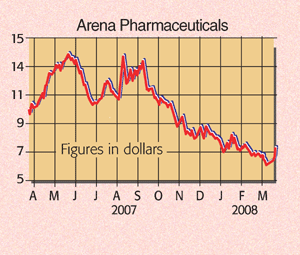
Think of the words ‘obesity crisis’ and the country that always comes to mind is America. It’s a common perception that the US has more than its fair share of overweight citizens, while the rest of the world remains shamingly slim and trim by comparison.
But that image is far from the truth. “The obesity crisis is no longer the preserve of the United States,” as stockbrokers Charles Stanley put it in a recent research note. “It has gone global.”
The World Health Organisation projects that 2.3 billion people will be overweight by 2015 and a further 700 million will be obese – a staggering 45% and 75% increase from current levels.
So why are people piling on the pounds? For the most part, it’s a consequence of lifestyles. As developing economies grow rapidly, more and more people around the world are becoming richer and leading more urban lifestyles. That generally means eating more and doing less physical work compared with an agrarian lifestyle. In addition, the faster pace of modern life is at once reducing the opportunities for exercise and encouraging the consumption of prepared, processed food.
Generational factors are also involved. As the ageing populations of industrialised countries retire from work and live more sedentary lives, we can expect obesity levels in these countries to rise further. But far more alarming is the trend at the opposite end of the age scale. Poor diet and a tendency to spend their leisure time in front of the TV mean that obesity in children is also increasing sharply.
According to the International Obesity Task Force, the percentage of overweight and obese children in England has more than tripled since the mid-1980s to around 25%. As research suggests that around 70% of overweight children go on to become overweight adults, this is clearly storing up problems for the future.
In short, weight is already a very pressing issue, and will only get worse in the years ahead. The Rand Corporation, a US think-tank, estimates that if current trends continue, obesity could account for 20% of US healthcare costs by 2020. Of course, where there’s a problem, there’s someone trying to solve it – and that means investment opportunities. While health-food companies and exercise-related businesses are one option, given today’s tendency to try to solve problems by popping pills, the most promising way to play our expanding waistlines is via the pharmaceutical sector.
A drug that can melt off the pounds is a holy grail for the pharmaceutical industry and several firms are trying to develop one. Two are already available – Roche/GSK’s Xenical and Abbott’s Meridia – but both have unpleasant side effects. Sanofi-Aventis had high hopes for Acomplia, but last year withdrew its application to market the drug in the US for weight-loss purposes after suggestions of increased suicide risks. It seems that weight-loss drugs are unlikely to reach a mass market unless they come with few side effects. There is also a reluctance among regulators to approve ‘lifestyle drugs’.
So while an effective treatment seems a sure blockbuster, it’s impossible to tell whether any of the drugs now in development will make the grade, making this theme fairly risky. A more conservative alternative is to invest in firms that treat obesity-related conditions, such as diabetes and heart disease. Below we look at one such provider, plus the firm behind a promising weight-loss drug.
The two best plays on the obesity theme
One established play is Denmark’s Novo Nordisk (Denmark:NOVOB; US:NVO), which draws around 75% of its revenues from the $21bn diabetes-care market. On a p/e of nearly 24 times, it isn’t the cheapest pharmaceutical stock on the market, but offers a record of strong growth (operating profit growth has averaged around 13% a year for the past five years) and high-quality management.
A shift towards higher-margin treatments, such as insulin substitutes, growth hormones and blood-clotting drugs is paying off, and double-digit profit growth should be sustainable – as long as new drug Liraglutide, which stimulates insulin production, performs well against a long-acting version of Eli Lilly’s Byetta.
Riskier, but with considerable potential, is Arena Pharmaceuticals (US:ARNA), one of many firms trying to develop that blockbuster weight-loss drug. Its offering, Lorcaserin, stimulates a protein in the brain that makes people feel full – the same approach used by a previous drug called Fen-phen, developed by Wyeth. Fen-phen was withdrawn in 1997 after causing heart-valve damage in some patients, but the latest trials suggest that Lorcaserin will not cause the same problem. Further studies are continuing, but if all goes well, Arena plans to seek US regulatory approval in 2009. Analysts estimate that it could generate over $1bn a year in sales for the group, which presently has no products on the market.